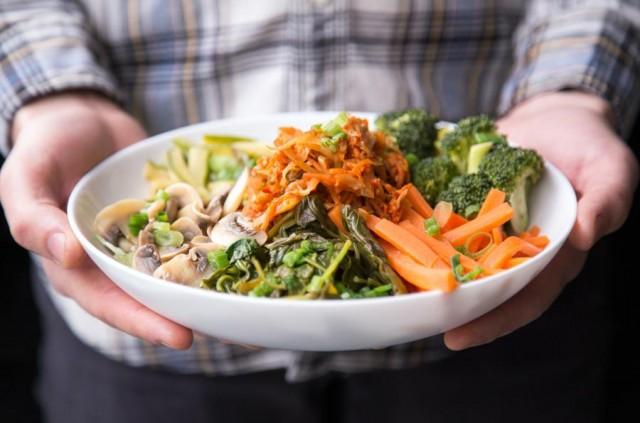5 nutrition tips from the DOST-FNRI to keep healthy during quarantine

As the positive cases of COVID-19 increase daily, it is important not only to stay at home and help flatten the curve, but to keep yourselves healthy, too.
The Department of Science and Technology’s Food and Nutrition Research Institute (DOST-FNRI) gave out nutrition tips for Filipinos to help them stay healthy while on enhanced community quarantine.
See them below:
1. Eat food high in essential nutrients
In a statement, DOST-FNRI said it's important to eat food items that have "essential nutrients." This will help maintain a healthy diet and to boost one's immune system.
What are foods high in essential nutrients? According ot the DOST-FBRI, root crops like sweet potatoes and cassava. They are cheaper, nutritious and can be stored for a longer period of time — perfect for the quarantine period that forces people to stay home.
"Rootcrops are also good sources of Vitamin C that can aid the body in fighting infections and diseases," DOST-FNRI said in a statement. "They are safe alternatives for people with hypertension and diabetes because of their high fiber content and low glycemic index."
Eggs are also recommended, as they are a great source of protein, vitamins A, B, E and K; "these nutrients are essential in maintaining bodily functions and immunity," they said.
Legumes including munggo, kadyos, kidney beans and nuts are good sources of protein vitamins and minerals, too.
Vegetables such as squash and carrots both have longer shelf-life and are also rich sources of beta-carotene and antioxidants.
Lastly, fruits that are abundant with Vitamin C such as dalandan, guava and oranges. Mangoes and raisins are also suggested because they can be stored longer.
2. Remember the "Pinggang Pinoy" guide
It would help to remember DOST-FNRI's nifty "Pinggang Pinoy" guide to help you with your meals. "Pinggang Pinoy" will have you imagine your plate divided into four. Half of it — or 50% — should be filled with "glow food" aka vegetables and fruits.
That leaves two more parts, right? One of those —or 25% of the plate — should be allotted to "carbohydrate-rich food" aka "go food" like rice, noodles, root crops, or bread, while the last 25% should go to proteins aka grow food.
DOST-FNRI said, "by eating the recommended servings of vegetables and fruits, intake of vitamins and minerals is assured that can help boost the immune system."
Aside from immunity, veggies and fruits rich in fiber will also help lower your cholesterol, blood sugar level, aid digestion and regular bowel movement.
3. Cook canned foods with vegetables
While most are fortunate to stock up on fresh produce at home, not all can do so. So mix it up.
When servicing processed or canned goods, DOST-FNRI suggested "to put vegetables in these. For example, put pechay in sardines, carrots and cabbage in instant noodles or squash in corned beef."
"Vegetables that can be easily found in backyards such as malunggay, alugbati and saluyot can also be used," DOST-FNRI noted.
4. Encourage your kids to drink milk
DOST-FNRI said milk should be part of children's daily diet.
"A glass of milk a day for kids to get essential nutrients needed for growth and development," they noted.
Aside from growth, it also offers "essential nutrients like calcium, protein, and vitamin D."
5. Exercise at home at least three times a week
Aside from eating nutritious food, keeping your body active is just as important when you want to be healthy.
According to DOST-FNRI's Nutritional Guidelines for Filipinos, people should allot 30 minutes of their day for exercise, and they should be able to do this for at least three times a week.
If you haven't worked out in a while, start with light exercises: go up and down the stairs, for instance. Use water bottles as dumbbells, maybe do a set each of sit-ups and jumping jacks.
You can also try online videos for more options.
DOST-FNRI reminded to drink water in between your workouts and stretch before and after exercising.
President Rodrigo Duterte placed the whole Luzon on enhanced community quarantine on March 17. It is expected to last until April 13.
The Department of Health on Wednesday announced that the number of COVID-19 infections in the Philippines rose to 2,311 with 96 deaths and 50 recoveries. — LA, GMA News



